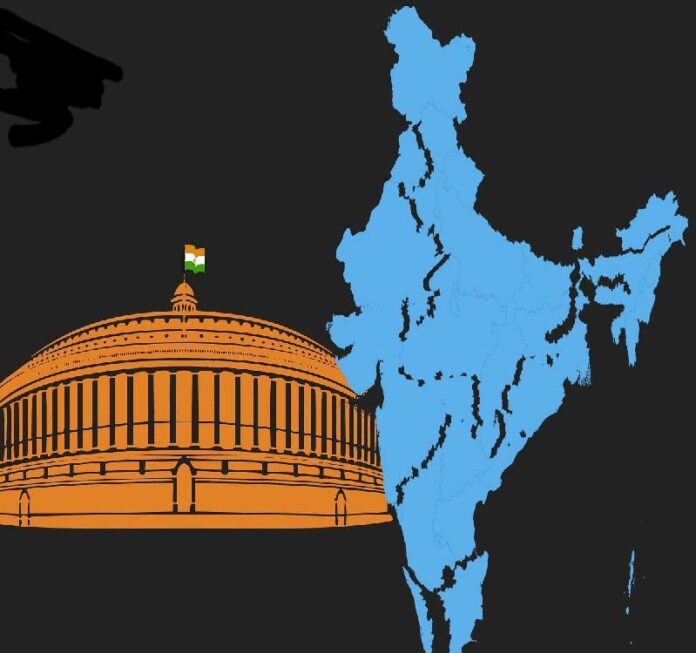The new IAS Rules for the All India Services is a brilliant system that was designed to serve as an instrument for nation-building are now posing the national threat.
The Union government has proposed an amendment to the IAS (Cadre) Rules, which would enable it to post IAS officers on Central deputation without consulting state governments. In effect, by this single amendment, the nature of All India Services (AIS) would be altered, making them, in essence, Central services.
The founding fathers of the Constitution understood that while India as a political entity had been created, the centripetal forces at work could rip the nascent nation apart. An amalgam of princely states and erstwhile British provinces, with different languages, food habits, cultural mores, etc, it would be impossible for the Centre to hold the nation together.
Therefore, they created one instrument of integration, which was born out of a deep understanding of the country’s diversity and of the difficulty of forging unity in such diversity. In a federal structure, in which the states had full autonomy to make laws and administer these within the jurisdiction carved out for them under the states’ list, it followed that the services needed for administration would be constituted under the state laws. The Centre would likewise create services to administer what fell within their jurisdiction.
How the AIS Struck a Fine Balance?
But to deal with narrow parochialism and to promote a greater national perspective in the administration of the states, the idea of creating a service, which would serve both the Central and the state governments, was mooted. It was also seen as building a “bridge” between the Centre and states.
By drawing upon officers of the AIS, who were placed at the disposal of state governments and worked throughout in their assigned states, except for periods of central deputation, the Central government’s policies, programmes and schemes, would reflect the grassroots realities, whereas those on deputation carried back with them the national perspective and experience to widen the vision of administration in states.
The Centre could create AIS and recruit officers who would work for both the Central and state governments, only after being “authorised” by the states to do so. The framers of the Constitution, therefore, enshrined the concept of the consent of states in the formation of the AIS.
On 8 September 1949, the Constituent Assembly of India met to debate Article 282(C), which subsequently became Article 312 in the Constitution of India. There was an extended debate on the issue of the power given to the Upper House of Parliament (Rajya Sabha), and giving the Lower House (Lok Sabha) no power, with respect to the formation of All India services.
What Dr Ambedkar Said?
Responding to various members of the Constituent Assembly, Dr BR Ambedkar said, “Article 282 proceeds by laying down the proposition that the Centre will have the authority to recruit for services which are under the Centre and each state shall be free to make recruitment and lay down conditions of service for persons who are to be under the state service. We have, therefore, by Article 282, provided complete jurisdiction.
Article 282 (C), to some extent, takes away the autonomy given to the states by Article 282, and obviously, if this autonomy is subsequently to be invaded, there must be some authority conferred upon the Centre to do so, and the only method of providing authority to the Centre to run into, so to say, Article 282 is to secure the consent of two-thirds of the members of the upper chamber. The upper chamber is the only body mentioned in Article 282. Ex-hypothesi the upper chamber represents the states and therefore their resolution would be tantamount to an authority given by the states.”
That is the reason why these words are introduced in Article 282 C. In the Constitution of India, Article 312 states that “(1) Notwithstanding anything in Chapter VI of Part VI or Part XI, if the Council of States has declared by resolution supported by not less than two-thirds of the members present and voting that it is necessary or expedient in the national interest so to so, Parliament may by law, provide for the creation of one or more All India Services…”
The Constitutional Arrangement in Article 312
The All India Services Act, 1951, reflects the constitutional arrangement in Article 312. Section 3 of the Act lays down that “(1) The Central Government may after consultation with the Government of the States concerned … make rules for the recruitment, and the conditions of service…”
The All India Services (Conduct) Rules, 1968, in the preamble acknowledge that “In exercise of the powers conferred by sub-section (1) of section 3 of the All India Services Act, 1951, the Central Government after consultation with the Governments of the states, hereby makes the following rules…”
To maintain an all-India character of these services, it was prescribed that two-thirds of the persons recruited for a state should not be from within that state. This has ensured that the top bureaucracy and the police officers do not belong to respective states, giving the administrative system a fairer, more impartial and broader character.
There can be no denying that the very raison d’etre of the AIS would come into question if this delicate balance between the Centre and states is disturbed.
A brilliant administrative architecture designed to serve as a crucial instrument of the project nation-building, which is still incomplete, would be destroyed, should the Central government persist in pushing through the proposed amendments. #KhabarLive #hydnews







